
School's out
A critical take on education and schooling
The 50 great books on education
Professor of Education, University of Derby
View all partners

I have often argued that I would not let any teacher into a school unless – as a minimum – they had read, carefully and well, the three great books on education: Plato’s Republic, Rousseau’s Émile and Dewey’s Democracy and Education. There would be no instrumental purpose in this, but the struggle to understand these books and the thinking involved in understanding them would change teachers and ultimately teaching.
These are the three great books because each is sociologically whole. They each present a description and arguments for an education for a particular and better society. You do not have to agree with these authors. Plato’s tripartite education for a just society ruled over by philosopher kings; Rousseau’s education through nature to establish the social contract and Dewey’s relevant, problem-solving democratic education for a democratic society can all be criticised. That is not the point. The point is to understand these great works. They constitute the intellectual background to any informed discussion of education.
What of more modern works? I used to recommend the “blistering indictment” of the flight from traditional liberal education that is Melanie Phillips’s All Must Have Prizes, to be read alongside Tom Bentley’s Learning Beyond the Classroom: Education for a Changing World, which is a defence of a wider view of learning for the “learning age”. These two books defined the debate in the 1990s between traditional education by authoritative teachers and its rejection in favour of a new learning in partnership with students.
Much time and money is spent on teacher training and continuing professional development and much of it is wasted. A cheaper and better way of giving student teachers and in-service teachers an understanding of education would be to get them to read the 50 great works on education.
The books I have identified, with the help of members of the Institute of Ideas’ Education Forum, teachers and colleagues at several universities, constitute an attempt at an education “canon”.
What are “out” of my list are textbooks and guides to classroom practice. What are also “out” are novels and plays. But there are some great literary works that should be read by every teacher: Charles Dicken’s Hard Times – for Gradgrind’s now much-needed celebration of facts; D. H. Lawrence’s The Rainbow – for Ursula Brangwen’s struggle against her early child-centred idealism in the reality of St Philips School; and Alan Bennett’s The History Boys – for Hector’s role as the subversive teacher committed to knowledge.
I hope I have produced a list of books, displayed here in alphabetical order, that are held to be important by today’s teachers. I make no apology for including the book I wrote with Kathryn Ecclestone, The Dangerous Rise of Therapeutic Education because it is an influential critical work that has produced considerable controversy. If you disagree with this, or any other of my choices, please add your alternative “canonical” books on education.
Michael W. Apple – Official Knowledge: Democratic Education in a Conservative Age (1993)
Hannah Arendt – Between Past and Future (1961), for the essay “The Crisis in Education” (1958)
Matthew Arnold – Culture and Anarchy (1867-9)
Robin Barrow – Giving Teaching Back to the Teachers (1984)
Tom Bentley – Learning Beyond The Classroom: Education for a Changing World (1998)
Allan Bloom – The Closing of the American Mind: How Higher Education Has Failed Democracy and Impoverished the Souls of Today’s Students (1987)
Pierre Bourdieu and Jean-Claude Passeron – Reproduction in Education, Society and Culture (1977)
Samuel Bowles and Herbert Gintis – Schooling in Capitalist America: Educational Reform and the Contradictions of Economic Life (1976)
Jerome Bruner – The Process of Education (1960)
John Dewey – Democracy and Education (1916)
Margaret Donaldson – Children’s Minds (1978)
JWB Douglas – The Home and the School (1964)
Kathryn Ecclestone and Dennis Hayes – The Dangerous Rise of Therapeutic Education (2008)
Harold Entwistle – Antonio Gramsci: Conservative Schooling for Radical Politics (1979).
Paulo Freire – Pedagogy of the Oppressed (1968/1970)
Frank Furedi – Wasted: Why Education Isn’t Educating (2009)
Helene Guldberg – Reclaiming Childhood (2009)
ED Hirsch Jnr. – The Schools We Need And Why We Don’t Have Them (1999)
Paul H Hirst – Knowledge and the Curriculum (1974) For the essay which appears as Chapter 3 ‘Liberal Education and the Nature of Knowledge’ (1965)
John Holt – How Children Fail (1964)
Eric Hoyle – The Role of the Teacher (1969)
James Davison Hunter – The Death of Character: Moral Education in an Age without Good or Evil (2000)
Ivan Illich – Deschooling Society (1971)
Nell Keddie (Ed.) – Tinker, Taylor: The Myth of Cultural Deprivation (1973)
John Locke – Some Thoughts Concerning Education (1692)
John Stuart Mill – Autobiography (1873)
Sybil Marshall – An Experiment in Education (1963)
Alexander Sutherland Neil – Summerhill: A Radical Approach to Child Rearing (1960)
John Henry Newman – The Idea of a University (1873)
Michael Oakeshott – The Voice of Liberal Learning (1989) In particular for the essay “Education: The Engagement and Its Frustration” (1972)
Anthony O’ Hear – Education, Society and Human Nature: An Introduction to the Philosophy of Education (1981)
Richard Stanley Peters – Ethics and Education (1966)
Melanie Phillips – All Must Have Prizes (1996)
Plato – The Republic (366BC?)
Plato – Protagoras (390BC?) and Meno (387BC?)
Neil Postman – The End of Education: Redefining the Value of School (1995)
Neil Postman and Charles Weingartner – Teaching as a Subversive Activity (1969)
Herbert Read – Education Through Art (1943)
Carl Rogers – Freedom to Learn: A View of What Education Might Become (1969)
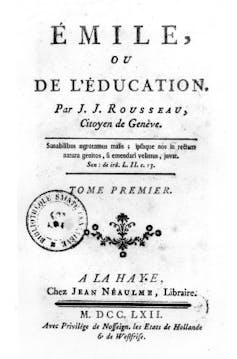
Jean-Jacques Rousseau – Émile or “on education” (1762)
Bertrand Russell – On Education (1926)
Israel Scheffler – The Language of Education (1960)
Brian Simon – Does Education Matter? (1985) Particularly for the paper “Why No Pedagogy in England?” (1981)
JW Tibble (Ed.) – The Study of Education (1966)
Lev Vygotsky – Thought and Language (1934/1962)
Alfred North Whitehead – The Aims of Education and other essays (1929)
Paul E. Willis – Learning to Labour: How Working Class Kids Get Working Class Jobs (1977)
Alison Wolf – Does Education Matter? Myths about Education and Economic Growth (2002)
Michael FD Young (Ed) – Knowledge and Control: New Directions for the Sociology of Education (1971)
Michael FD Young – Bringing Knowledge Back In: From Social Constructivism to Social Realism in the Sociology of Education (2007)
- Teacher training
- Continuing professional development
Postdoctoral Research Associate

Project Manager – Contraceptive Development

Editorial Internship

Integrated Management of Invasive Pampas Grass for Enhanced Land Rehabilitation
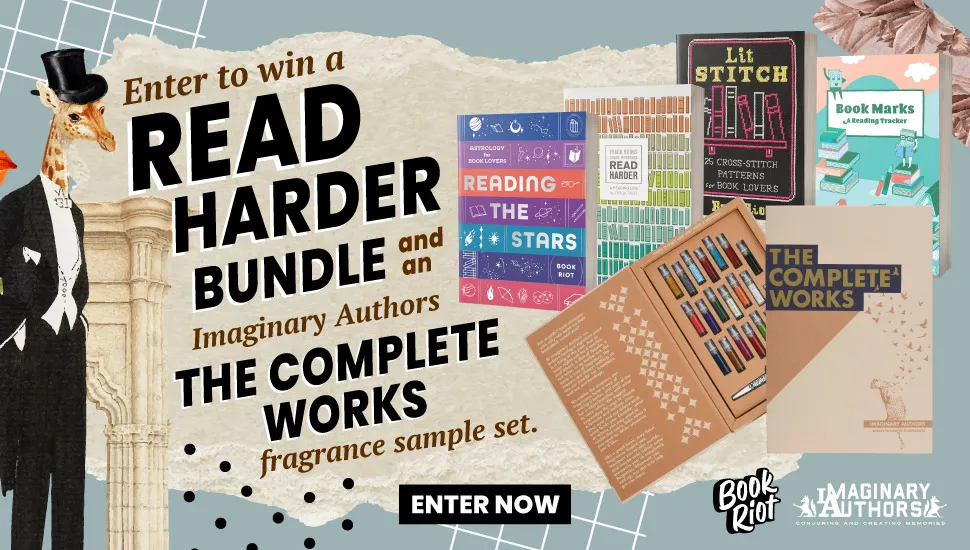
8 Books to Read if You Want to Make American Education Great Again
Eight books for learning about the American educational system and ideas for reform.
Amanda Kay Oaks
A native of Cincinnati, Ohio, Amanda Kay Oaks has a BFA in Creative Writing and Literature from The University of Evansville and is a current creative nonfiction MFA student at Chatham University. An AmeriCorps alum, online tutor, and literary journal editor, Amanda considers herself a professional wearer of many hats and isn't sure what she'll do if she ever actually has only one job at a time. When she isn't working, reading, writing, or pretending to be a practiced yogi, Amanda can most likely be found snuggled up on the couch with her cat, Artemis, and a plate of cookies. She tweets T.S. Eliot quotes a little too often and tries to keep up with her personal book blog, I Write Things . Twitter: @I_Write_Things
View All posts by Amanda Kay Oaks
One of the many issues that keeps popping up in American news is who should be our next Secretary of Education. This debate brings about questions of what’s next in the ever changing landscape of public education. Our education system seems to be in constant flux, but are the changes helping or hurting students?
If you want to be prepared to guide our children (and adult learners) to a better future, why not start with educating yourself about how our education system got this way–and whether or not it works.
There are a number of great books out there, but here are a few suggestions for where to start.
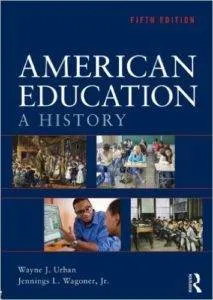
This book seems like a good starting point, as it details the history of American Education from pre-colonial days on (including a look at Native American education before colonization). It deals with major education movements in each time period, tracing how we got to where we are today.
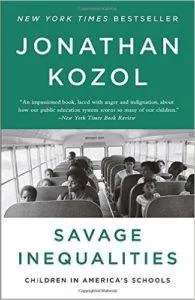
Savage Inequalities addresses the funding gap between schools in wealthy areas and those in poorer ones. To write this book on whether or not our education system really provides equal opportunity to every child, Kozul spent two years touring the country, interviewing teachers, principals, superintendents, and students.
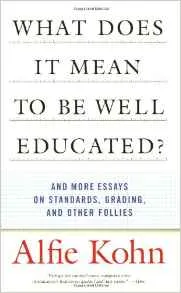
This book features a series of essays about our education system’s fixation on scores and grades. As standardized tests continue to be the standard on which both students and teachers are judged, what are we losing? What is the real goal of education–and are we still focusing on this as we try new and different systems to evaluate and score students?
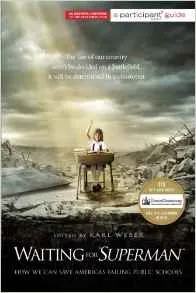
This book (and the documentary of the same name) draws on the knowledge of education reform experts to provide insight, suggestions, and resources to help the reader join the struggle to improve our schools.
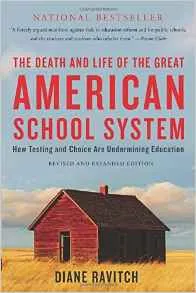
Ravitch is the former assistant secretary of education and a voice for the drive to create a national curriculum. Drawing on her experience, she re-examines previously held positions and makes a case for why we need education reform.
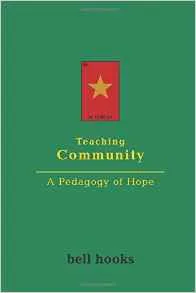
This book is part of a three book pedagogy trilogy that takes on issues of education and the issues inherent in the system. In this book, bell hooks tackles areas such as race, gender, class and nationality both in and beyond the classroom. She reminds us that education needs to be democratic, leaving space for all perspectives and all people to thrive.
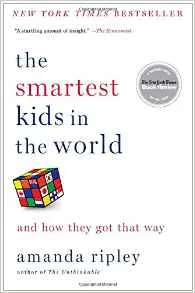
This book serves as a nice point for comparison, looking at education systems in other countries that approach education differently than America does. Ripley follows three Americans who live in three of these “smart” countries for a year–South Korea, Finland, and Poland.
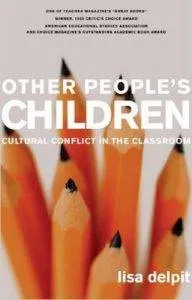
This book deals with the disparity between the number of children of color in the classroom and the number of teachers of color who instruct them. She discusses the teacher’s role as a “cultural transmitter” and examines the role of power dynamics and authority in the classroom.

You Might Also Like

7 Must-Read Books on Education
By maria popova.

ISAAC ASIMOV: THE ROVING MIND

Once we have computer outlets in every home, each of them hooked up to enormous libraries where anyone can ask any question and be given answers, be given reference materials, be something you’re interested in knowing, from an early age, however silly it might seem to someone else… that’s what YOU are interested in, and you can ask, and you can find out, and you can do it in your own home, at your own speed, in your own direction, in your own time… Then, everyone would enjoy learning. Nowadays, what people call learning is forced on you, and everyone is forced to learn the same thing on the same day at the same speed in class, and everyone is different.” ~ Isaac Asimov
SIR KEN ROBINSON: THE ELEMENT

We have a system of education that is modeled on the interest of industrialism and in the image of it. School are still pretty much organized on factory lines — ringing bells, separate facilities, specialized into separate subjects. We still educate children by batches. Why do we do that?”
For an excellent complement to The Element , we highly recommend Robinson’s prior book, Out of Our Minds: Learning to be Creative — re-released last month, it offers a thoughtful and provocative analysis of the disconnect between the kinds of “intelligence” measured and encouraged in schools and the kinds of creativity most essential to our society moving forward.
A NEW CULTURE OF LEARNING

We’re stuck in a mode where we’re using old systems of understanding learning to try to understand these new forms, and part of the disjoint means that we’re missing some really important and valuable data.” ~ Douglas Thomas
Our full review here .
CLARK KERR: THE USES OF THE UNIVERSITY

What the railroads did for the second half of the last century and the automobile for the first half of this century may be done for the second half of this century by the knowledge industry: And that is, to serve as the focal point for national growth.” ~ Clark Kerr
ANYA KAMENETZ: DIYU

The promise of free or marginal-cost open-source content, techno-hybridization, unbundling of educational functions, and learner-centered educational experiences and paths is too powerful to ignore. These changes are inevitable. They are happening now. […] However, these changes will not automatically become pervasive.” ~ Anya Kamenetz
KARL WEBER: WAITING FOR SUPERMAN

In America right now, a kid drops out of high school every 26 seconds. These drop-outs are 8 times more likely to go to prison, 50% less likely to vote, more likely to need social welfare assistance, not eligible for 90% of jobs, are being paid 40 cents to the dollar of earned by a college graduate, and continuing the cycle of poverty.”
HOWARD GARDNER: FIVE MINDS FOR THE FUTURE
The synthesizing mind takes information from disparate sources, understands and evaluates that information objectively, and puts it together in ways that make sense to the synthesizer and also to other persons. Valuable in the past, the capacity to synthesize becomes ever more crucial as information continues to mount at dizzying rates.” ~ Howard Gardner
— Published April 11, 2011 — https://www.themarginalian.org/2011/04/11/7-must-read-books-on-education/ —

www.themarginalian.org

PRINT ARTICLE
Email article, filed under, books culture education isaac asimov knowledge ominus omnibus science video, view full site.
The Marginalian participates in the Bookshop.org and Amazon.com affiliate programs, designed to provide a means for sites to earn commissions by linking to books. In more human terms, this means that whenever you buy a book from a link here, I receive a small percentage of its price, which goes straight back into my own colossal biblioexpenses. Privacy policy . (TLDR: You're safe — there are no nefarious "third parties" lurking on my watch or shedding crumbs of the "cookies" the rest of the internet uses.)

- Education & Teaching
- Schools & Teaching

Enjoy fast, free delivery, exclusive deals, and award-winning movies & TV shows with Prime Try Prime and start saving today with fast, free delivery
Amazon Prime includes:
Fast, FREE Delivery is available to Prime members. To join, select "Try Amazon Prime and start saving today with Fast, FREE Delivery" below the Add to Cart button.
- Cardmembers earn 5% Back at Amazon.com with a Prime Credit Card.
- Unlimited Free Two-Day Delivery
- Streaming of thousands of movies and TV shows with limited ads on Prime Video.
- A Kindle book to borrow for free each month - with no due dates
- Listen to over 2 million songs and hundreds of playlists
- Unlimited photo storage with anywhere access
Important: Your credit card will NOT be charged when you start your free trial or if you cancel during the trial period. If you're happy with Amazon Prime, do nothing. At the end of the free trial, your membership will automatically upgrade to a monthly membership.


Buy new: .savingPriceOverride { color:#CC0C39!important; font-weight: 300!important; } .reinventMobileHeaderPrice { font-weight: 400; } #apex_offerDisplay_mobile_feature_div .reinventPriceSavingsPercentageMargin, #apex_offerDisplay_mobile_feature_div .reinventPricePriceToPayMargin { margin-right: 4px; } -44% $14.99 $ 14 . 99 Join Prime (function(f) {var _np=(window.P._namespace(""));if(_np.guardFatal){_np.guardFatal(f)(_np);}else{f(_np);}}(function(P) { P.when('ready').execute("npa-prime-signup-ingress", () => { P.load.js("https://d1nruqhae353qc.cloudfront.net/primesignup/widget.js"); }); })); to get FREE delivery Monday, October 28 Ships from: Amazon Sold by: Fibat Trade
Return this item for free.
We offer easy, convenient returns with at least one free return option: no shipping charges. All returns must comply with our returns policy.
- Go to your orders and start the return
- Select your preferred free shipping option
- Drop off and leave!
Save with Used - Good .savingPriceOverride { color:#CC0C39!important; font-weight: 300!important; } .reinventMobileHeaderPrice { font-weight: 400; } #apex_offerDisplay_mobile_feature_div .reinventPriceSavingsPercentageMargin, #apex_offerDisplay_mobile_feature_div .reinventPricePriceToPayMargin { margin-right: 4px; } $7.50 $ 7 . 50 Join Prime (function(f) {var _np=(window.P._namespace(""));if(_np.guardFatal){_np.guardFatal(f)(_np);}else{f(_np);}}(function(P) { P.when('ready').execute("npa-prime-signup-ingress", () => { P.load.js("https://d1nruqhae353qc.cloudfront.net/primesignup/widget.js"); }); })); to get FREE delivery Monday, October 28 Ships from: Amazon Sold by: 1337_GAMEZ

Download the free Kindle app and start reading Kindle books instantly on your smartphone, tablet, or computer - no Kindle device required .
Read instantly on your browser with Kindle for Web.
Using your mobile phone camera - scan the code below and download the Kindle app.

Image Unavailable

- To view this video download Flash Player
Follow the author

Wasting Minds: Why Our Education System Is Failing and What We Can Do About It 28565th Edition
Purchase options and add-ons.
Why has successful school reform been so difficult to achieve, despite decades of well-intentioned efforts, endless rhetoric, and billions of dollars of investment? Why do most U.S. schools continue to produce disappointing results? Why is there such a disconnect between the schools we need and the schools we have?
In this thoughtful and insightful book, Ronald A. Wolk tackles these questions head-on, identifying key assumptions that have shaped the debate on school reform for the past several decades, including the emphasis on standards and testing, calls for a longer school day and year, the push to enroll more students in advanced math classes, and the quest to place a highly qualified teacher in every classroom. Backed by research and other evidence, he points out the flaws in each assumption, and then proposes alternative assumptions as the basis for new, innovative schools that would emphasize such elements as
* Individualized instruction, with various pathways for learning; * Real-world contexts for learning; * Performance assessment; * A restructuring of public education to expand preschool; and * Transformation of the teachers' role from instructor to advisor.
Acknowledging that the current system is too entrenched to accept radical reform, Wolk suggests incorporating his assumptions into a separate, parallel strategy for new schools. The result is a provocative proposal for teachers, administrators, policymakers, parents, and others to consider as they contemplate the future of public education in the United States.
- ISBN-10 1416611312
- ISBN-13 978-1416611318
- Edition 28565th
- Publisher ASCD
- Publication date February 18, 2011
- Language English
- Dimensions 5.75 x 0.25 x 8.75 inches
- Print length 199 pages
- See all details

Editorial Reviews
About the author, product details.
- Publisher : ASCD; 28565th edition (February 18, 2011)
- Language : English
- Paperback : 199 pages
- ISBN-10 : 1416611312
- ISBN-13 : 978-1416611318
- Item Weight : 10.4 ounces
- Dimensions : 5.75 x 0.25 x 8.75 inches
- #2,288 in Education Reform & Policy
- #4,360 in History of Education
- #8,468 in Educational Certification & Development
About the author
Ronald a. wolk.
Discover more of the author’s books, see similar authors, read book recommendations and more.
Customer reviews
- 5 star 4 star 3 star 2 star 1 star 5 star 65% 14% 22% 0% 0% 65%
- 5 star 4 star 3 star 2 star 1 star 4 star 65% 14% 22% 0% 0% 14%
- 5 star 4 star 3 star 2 star 1 star 3 star 65% 14% 22% 0% 0% 22%
- 5 star 4 star 3 star 2 star 1 star 2 star 65% 14% 22% 0% 0% 0%
- 5 star 4 star 3 star 2 star 1 star 1 star 65% 14% 22% 0% 0% 0%
Customer Reviews, including Product Star Ratings help customers to learn more about the product and decide whether it is the right product for them.
To calculate the overall star rating and percentage breakdown by star, we don’t use a simple average. Instead, our system considers things like how recent a review is and if the reviewer bought the item on Amazon. It also analyzed reviews to verify trustworthiness.
- Sort reviews by Top reviews Most recent Top reviews
Top reviews from the United States
There was a problem filtering reviews right now. please try again later..
- Amazon Newsletter
- About Amazon
- Accessibility
- Sustainability
- Press Center
- Investor Relations
- Amazon Devices
- Amazon Science
- Sell on Amazon
- Sell apps on Amazon
- Supply to Amazon
- Protect & Build Your Brand
- Become an Affiliate
- Become a Delivery Driver
- Start a Package Delivery Business
- Advertise Your Products
- Self-Publish with Us
- Become an Amazon Hub Partner
- › See More Ways to Make Money
- Amazon Visa
- Amazon Store Card
- Amazon Secured Card
- Amazon Business Card
- Shop with Points
- Credit Card Marketplace
- Reload Your Balance
- Amazon Currency Converter
- Your Account
- Your Orders
- Shipping Rates & Policies
- Amazon Prime
- Returns & Replacements
- Manage Your Content and Devices
- Recalls and Product Safety Alerts
- Registry & Gift List
- Conditions of Use
- Privacy Notice
- Consumer Health Data Privacy Disclosure
- Your Ads Privacy Choices
- NONFICTION BOOKS
- BEST NONFICTION 2023
- BEST NONFICTION 2024
- Historical Biographies
- The Best Memoirs and Autobiographies
- Philosophical Biographies
- World War 2
- World History
- American History
- British History
- Chinese History
- Russian History
- Ancient History (up to c. 500 AD)
- Medieval History (500-1400)
- Military History
- Art History
- Travel Books
- Ancient Philosophy
- Contemporary Philosophy
- Ethics & Moral Philosophy
- Great Philosophers
- Social & Political Philosophy
- Classical Studies
- New Science Books
- Maths & Statistics
- Popular Science
- Physics Books
- Climate Change Books
- How to Write
- English Grammar & Usage
- Books for Learning Languages
- Linguistics
- Political Ideologies
- Foreign Policy & International Relations
- American Politics
- British Politics
- Religious History Books
- Mental Health
- Neuroscience
- Child Psychology
- Film & Cinema
- Opera & Classical Music
- Behavioural Economics
- Development Economics
- Economic History
- Financial Crisis
- World Economies
- Investing Books
- Artificial Intelligence/AI Books
- Data Science Books
- Sex & Sexuality
- Death & Dying
- Food & Cooking
- Sports, Games & Hobbies
- FICTION BOOKS
- BEST NOVELS 2024
- BEST FICTION 2023
- New Literary Fiction
- World Literature
- Literary Criticism
- Literary Figures
- Classic English Literature
- American Literature
- Comics & Graphic Novels
- Fairy Tales & Mythology
- Historical Fiction
- Crime Novels
- Science Fiction
- Short Stories
- South Africa
- United States
- Arctic & Antarctica
- Afghanistan
- Myanmar (Formerly Burma)
- Netherlands
- Kids Recommend Books for Kids
- High School Teachers Recommendations
- Prizewinning Kids' Books
- Popular Series Books for Kids
- BEST BOOKS FOR KIDS (ALL AGES)
- Books for Toddlers and Babies
- Books for Preschoolers
- Books for Kids Age 6-8
- Books for Kids Age 9-12
- Books for Teens and Young Adults
- THE BEST SCIENCE BOOKS FOR KIDS
- BEST KIDS' BOOKS OF 2024
- BEST BOOKS FOR TEENS OF 2024
- Best Audiobooks for Kids
- Environment
- Best Books for Teens of 2024
- Best Kids' Books of 2024
- Mystery & Crime
- Travel Writing
- New History Books
- New Historical Fiction
- New Biography
- New Memoirs
- New World Literature
- New Economics Books
- New Climate Books
- New Math Books
- New Philosophy Books
- New Psychology Books
- New Physics Books
- THE BEST AUDIOBOOKS
- Actors Read Great Books
- Books Narrated by Their Authors
- Best Audiobook Thrillers
- Best History Audiobooks
- Nobel Literature Prize
- Booker Prize (fiction)
- Baillie Gifford Prize (nonfiction)
- Financial Times (nonfiction)
- Wolfson Prize (history)
- Royal Society (science)
- NBCC Awards (biography & memoir)
- Pushkin House Prize (Russia)
- Walter Scott Prize (historical fiction)
- Arthur C Clarke Prize (sci fi)
- The Hugos (sci fi & fantasy)
- Audie Awards (audiobooks)
- Wilbur Smith Prize (adventure)
Make Your Own List
World » Americas » United States
The best books on american education, recommended by michelle rhee.
The educationalist tells us about her experience as head of Washington DC’s public school system and explains how poorly performing children, and institutions, can be helped to improve
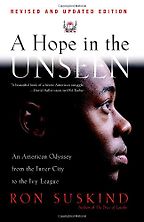
A Hope in the Unseen by Ron Suskind
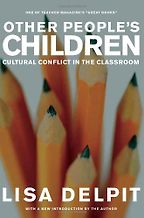
Other People’s Children by Lisa Delpit
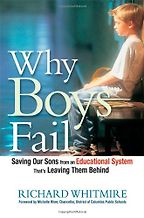
Why Boys Fail by Richard Whitmire
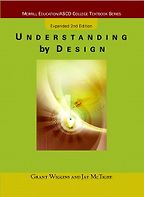
Understanding by Design by Grant Wiggins and Jay McTighe
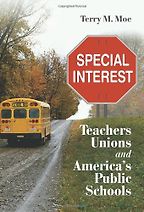
Special Interest by Terry Moe

1 A Hope in the Unseen by Ron Suskind
2 other people’s children by lisa delpit, 3 why boys fail by richard whitmire, 4 understanding by design by grant wiggins and jay mctighe, 5 special interest by terry moe.
H orace Mann, the 19th century American education reformer, called public school “the greatest discovery made by man”. Before we hit the books, please tell me what you see as the purpose of public education.
You attended public school through the sixth grade and returned to teach in the inner city. Then at 27 you started a non-profit organisation to train teachers, and at 37 you became chancellor of one of the most distressed school systems in the nation. As DC chancellor you instituted reforms which are credited with helping raise scores and graduation rates. What did you learn as a student in public school that drove you towards these achievements?
Now for your five books. Your first choice, A Hope in the Unseen , is based on a series of articles which won the writer a Pulitzer prize. It is subtitled An American Odyssey from the Inner City to the Ivy League . Tell us about this bestseller.
A Hope in the Unseen is an amazing first-hand account of the struggles a poor African-American student with tremendous ability and potential went through while growing up and going to schools in Washington, DC, where I was chancellor. The book walks through the challenges this young man had to overcome during his schooling and his transition to higher education. It’s a great book for people who believe that the circumstances of your upbringing don’t need to circumscribe how far you can go in life.
The hero of this book, Cedric Jennings, is raised by a single mother who is mired in debt and he is the son of a man who was incarcerated for drug crimes throughout much of Cedric’s youth. But Cedric doesn’t use his circumstances as an excuse for failure. How can public schools make sure they meet the needs of students like Cedric?
One of the biggest lessons that people should take from this story is that there are so many Cedrics out there. People shouldn’t assume that a kid from a certain school or a certain neighbourhood can’t achieve at the highest levels. Kids like Cedric prove those assumptions wrong.
Suskind describes how Cedric was harassed and threatened with violence by his peers simply for succeeding in class. Suskind says educators call it the crab-bucket syndrome: “When one crab tries to climb from the bucket, the others pull it back down.” What can educators do to combat that anti-achievement ethos?
This is an important point and one that educators think about a lot. We need to find ways, within the culture of schools, to celebrate academic achievers as much as we celebrate athletic achievement. Even in low-performing schools people come out for a basketball game or a homecoming game. That’s why athletes are revered – the entire community rallies around them. We have to do the same kind of thing for the kids that are succeeding academically.
How do you do that in an urban environment?
Your next choice argues that educators too often see disadvantaged students like Cedric as damaged caricatures. Other People’s Children is a collection of essays by MacArthur Fellowship-winning education scholar Lisa Delpit. Tell us about it.
Other People’s Children is one of the books that all educators should read because it really gives a different perspective on teaching children who may not be of the same race or socioeconomic background. I think it’s always important for teachers to understand the cultural norms and expectations that prevail in the school environment where they work. Teachers need to be cognisant, not complacent, about teaching across difference. Other People’s Children helps educators ask themselves the right questions and gives them a lens through which they can view and think about how cultural dynamics play out in the classroom.
Delpit also argues that elements of progressive education are failing minority students and that it is necessary to focus on teaching kids the fundamental academic skills they need to be successful participants in society – skills they are unlikely to get at home or in unstructured environments. Do you agree with that perspective?
I think that her perspective is worth considering. When I was training to teach, I was taught a lot about cooperative learning and giving students autonomy. But once I got in the classroom, I found that what my kids really craved was structure. A number of them had very chaotic home lives, so when they came to school having the freedom to explore wasn’t what they wanted. What they wanted was to know step-by-step what to expect and what was expected of them. They responded well to structure, so that’s what I gave them. I learned to adapt my methods to their needs. Adjusting your approach to fit the cultural dynamics of a classroom – without lowering your expectations for kids’ achievement – is what Delpit really advocates, and I agree.
How do you think cultural conflicts in the classroom impact on educational outcomes?
Let’s move on to a book about educating across gender difference by Richard Whitmire. I should note, you wrote the foreword to this book and Whitmire wrote a book about your success in turning around the DC school system. That said, tell us about Why Boys Fail and why you think it’s so important.
We have spent a lot of time over the past decade talking about the racial achievement gap, which is incredibly important. But the achievement gap between boys and girls is also an incredibly important issue for the future of education, and it’s an issue that doesn’t get nearly enough attention.
Whitmire underscores that boys are behind girls in academic skills, grade point averages and average educational attainment.
What is Whitmire’s explanation for the gender gap and what is the prescription for remedying it?
Often the warning signs that teachers or parents could pick up on get brushed aside. Richard shows that people aren’t taking the issue nearly as seriously as they should. We need to look at boys as a subset of kids, just as we track educational outcomes by socioeconomic status, grade et cetera. Focusing on the differences in achievement levels that are occurring will enable educators to focus resources on ensuring there is parity.
How can educators focus on the needs of boys as students?
Sounds like good, attuned teachers are the key. But let’s move to curriculum, and a book about curriculum design owned by more than 250,000 American educators. Tell us about Understanding by Design by Wiggins and McTighe.
Understanding by Design is an incredibly influential book. Its premise is that you have to start curriculum design with an end in mind. You figure out what your goal is first and plan backwards from there, building your curriculum around what you want to achieve. It sounds very simple but for a long time people weren’t doing that. They were covering units or textbooks without clear priorities or purposes in mind. Backwards design helps teachers to focus on the endgame and hold themselves to account for meeting their goals.
How much freedom should teachers have to design their own curriculum in a standards-driven educational system?
Finally, tell us about Special Interest by Hoover Institution scholar Terry Moe.
Terry focuses on teachers’ unions and their influence on education policy in this country. His book presents the facts on how the unions operate and what their sphere of influence is. I think that people will be shocked by some of the information in the book about political involvement of teachers’ unions. Understanding teachers’ union dynamics helps us understand why we are where we are as a country. I probably have very different views from Dr Moe on teachers’ unions, but I do think his book sheds some light on the political dynamics that shape education policy in this country.
What is in this book that you think readers will be shocked to learn?
I think there is a general perception that teachers’ unions spend a lot of time and their money on professional development. I think people are shocked when they find out how much money unions are spending on the political process. I understand why they are doing that – their job, ultimately, is to protect the rights, privileges and pay of their members. Being an influential player in the political arena enables unions to influence laws and policies that are going to affect your members. But everyday people in the grocery store may not know the extent to which that happens and how massive their influence is.
Do you think it is advisable to reform teachers’ unions or even bar them from collective bargaining?
People ask me, “How can we change teachers unions to make them more reform-oriented?” I think that is the wrong focus. Teachers’ unions are doing exactly what they are supposed to be doing – maximising the pay, privileges and priorities of their members. They’re doing a great job of that. I don’t believe that we should deny teachers the right to be well represented. I think we just need some balance. We need to create a national organised interest group – with as much or more heft than teachers’ unions – to advocate on behalf of kids. I think that’s the way to solve the problem.
I assume that’s why you founded Students First, which just surpassed the 500,000-member mark. What are the key agenda items of Students First?
There are three main aspects to our policy agenda. First is human capital – making sure there is a great teacher in every classroom and a great principal leading every school. The second is choice and competition. We think it is incredibly important to never have a circumstance where a family feels like they are trapped in a failing school without options and opportunities for their kids. The last agenda item is accountability for every child and every dollar – governance systems that are better able to help kids live up to their potential and make sure that we are spending our education dollars in the most highly impactful way.
Why should every citizen, including the childless and the families who opt out of the public system, care about quality education?
That’s a great question. One of the challenges reformers face is that people don’t see how the failures of our public education system impact on them. The modern global marketplace requires a well-functioning public education system. Businesses need a well-educated workforce. Property values hinge on the quality of local public schools. A sound public education system is a way to combat crime in your community. So even people that may think they are insulated from the weaknesses in our public education system, their lives and livelihoods are negatively impacted because we don’t have a public education system that serves all kids well. We’re not going to get real sweeping reform until every citizen understands that having a poorly performing public education system means that we all lose.
August 17, 2011
Five Books aims to keep its book recommendations and interviews up to date. If you are the interviewee and would like to update your choice of books (or even just what you say about them) please email us at [email protected]
Support Five Books
Five Books interviews are expensive to produce. If you've enjoyed this interview, please support us by donating a small amount .
Michelle Rhee
As the chancellor of Washington DC’s public school system from 2007 to 2010, Michelle Rhee gained a reputation as a reformer that landed her on the cover of Time and in its list of the world’s 100 most influential people. A graduate of Cornell and the John F Kennedy School of Government at Harvard, Rhee taught in the inner city before founding an organisation to support teacher training. Since stepping down as chancellor, Rhee has continued her advocacy by founding Students First
We ask experts to recommend the five best books in their subject and explain their selection in an interview.
This site has an archive of more than one thousand seven hundred interviews, or eight thousand book recommendations. We publish at least two new interviews per week.
Five Books participates in the Amazon Associate program and earns money from qualifying purchases.
© Five Books 2024

The Death and Life of the Great American School System: How Testing and Choice Are Undermining Education
Diane ravitch.
283 pages, Hardcover
First published January 1, 2010
About the author

Ratings & Reviews
What do you think? Rate this book Write a Review
Friends & Following
Community reviews.

Join the discussion
Can't find what you're looking for.

IMAGES
VIDEO
COMMENTS
But there are some great literary works that should be read by every teacher: Charles Dicken’s Hard Times – for Gradgrind’s now much-needed celebration of facts; D. H. Lawrence’s The...
If you want to be prepared to guide our children (and adult learners) to a better future, why not start with educating yourself about how our education system got this way–and whether or not it works. There are a number of great books out there, but here are a few suggestions for where to start.
While much has been said and written about education reform over the past couple of years, the issue and the public discourse around it are hardly new phenomena. Today, we round up the most compelling and visionary reading on reinventing education from the past century.
In this explosive book, Bryan Caplan argues that the primary function of education is not to enhance students' skill but to certify their intelligence, work ethic, and conformity―in other words, to signal the qualities of a good employee.
Books on, about theory and/ or practice of education, teaching, teachers, students, curriculum, social systems, classrooms. Anything that discusses issues of knowledge, pedagogy, teaching and learning in the context of an imagined or real classroom, particularly books that draw attention to challenges posed by democracy, liberalism, child ...
The untold story of the root cause of America's education crisis. It was only after years within the education reform movement that Natalie Wexler stumbled across a hidden explanation for our country's frustrating lack of progress when it comes to providing every child with a quality education.
But instead of leaving us with mere diagnosis, Ron Wolk offers a wise and compelling set of remedies. Writing with an idealist's heart and a pragmatist's spine, he shows how to build an education system centered on students and true to the ideals of freedom, rigor, and fairness.
The best books on American Education recommended by Michelle Rhee. The educationalist tells us about her experience as head of Washington DC’s public school system and explains how poorly performing children, and institutions, can be helped to improve
Thomas Sowell. An indictment of the American educational system criticizes the fact that the system has discarded the traditional goals of transmitting knowledge and fostering cognitive skills in favor of building self-esteem and promoting social harmony. 368 pages, Paperback. First published November 2, 1992.
A passionate plea to preserve and renew public education, The Death and Life of the Great American School System is a radical change of heart from one of America’s best-known education experts. Diane Ravitch—former assistant secretary of education and a leader in the drive to create a national curriculum—examines her career in education ...